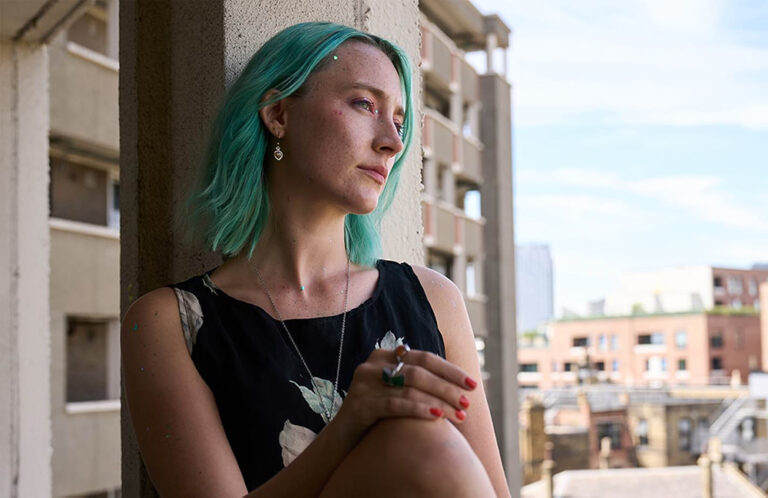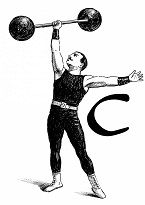There’s a scene in “The Outrun” where Rona (played by Saoirse Ronan) has a moment of crisis. She’s a recovering alcoholic desperately trying to stay sober; but at this instant, when her world is crashing around her, she craves a drink more than she ever has before. The lens lingers on her as she gazes directly at the camera, directly at us, with a pleading look on her face as if to say “What should I do now? Can somebody please help me?”
I had the same look on my face as the film edged close to the 2-hour mark. Yes, there were some gripping moments in Rona’s story, a lot of beautiful scenery and Saoirse’s usual impeccable performance, but several parts of the film dragged.
A Story in Non-Linear Fashion
The film (directed by Nora Fingscheidt and written by Fingscheidt and Amy Liptrot, based on a memoir by Liptrot and Daisy Lewis) could have easily been trimmed by 15 minutes. Like many alcoholics, Rona is stuck in an endless loop of excess drinking then rebounding to sobriety and back. Her relationship with her boyfriend Daynin (Paapa Essiedu)—who tries to be understanding and help her—never feels as deep and meaningful as it should, despite both actors being amazing. The script just doesn’t help them at all.
What makes the whole thing even more difficult to watch is director Fingscheidt’s decision to tell Rona’s story in a non-linear fashion. Casting aside a straightforward narrative sometimes works, as in films such as “Pulp Fiction,” “Citizen Kane” and “Annie Hall.” Those films benefited from a non-linear style and in the case of “Pulp Fiction” made the film a lot more exciting because you could never guess what was going to happen to characters even after they died.
But the non-linear style of “The Outrun” at times feels like something went awry in the editing room. The film is jarring at times, jumping randomly back and forth in time. Perhaps this was Fingscheidt’s way of making the viewer feel as off-kilter and out of sorts as Rona, who flits in and out of AA meetings and whiskey bottles, swaying from feverish raging drunk to ice cold sober like she’s changing shoes. This jumping around is thankfully toned down by the film’s third act, which is by far the best part of the film. Like Rona herself, the film transforms from being hyper and erratic to meditative and quite beautiful, with Rona taking a sabbatical on the remote Scottish island of Papa Westray. I just wish the film had gotten to this point sooner.
A Third Act and Beautiful Cinematography Elevate ‘The Outrun’

The true joy of the film is the cinematography of Yunus Roy Imer, who worked previously with Nora Fingscheidt on the film “System Crasher.” Through his many compositions, we go from the gritty streets of London (which at times reminded me of the great location work done on the grimy streets of New York in 1970s films) to the transcendent beauty of Papa Westray.
Ah, Papa Westray. I had never heard of it before but it’s a wonder to behold. I envied Rona and her stay there, wandering cliffs overlooking craggy beaches, where the ocean splashes and tickles the rocks, filling the air with salty mist. The film is a visual feast from beginning to end.
I feel Saiorse Ronan is one of the best actors working in film these days. I didn’t necessarily think Rona’s story was inspiring, but her love of nature was incredibly heart-warming.



